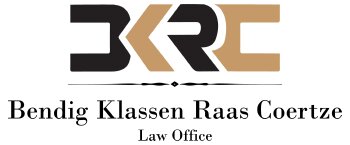Best Disability Lawyers in Prince Albert
Share your needs with us, get contacted by law firms.
Free. Takes 2 min.
List of the best lawyers in Prince Albert, Canada
About Disability Law in Prince Albert, Canada
Disability law in Prince Albert, Saskatchewan, falls under the broader legal framework of Canadian disability law. This encompasses a range of legal protections designed to ensure fair treatment, opportunities, and accessibility for individuals with disabilities. The city of Prince Albert adheres to national standards and provincial regulations to promote inclusivity and protect the rights of disabled persons, paralleling efforts seen across Canada.
Why You May Need a Lawyer
Individuals might need legal assistance in the field of disability for several reasons. Common situations include navigating benefit claims such as the Canada Pension Plan Disability (CPPD) benefit, resolving disputes with employers regarding workplace accommodations, addressing issues of discrimination or accessibility, and understanding nuances within insurance policies. Legal professionals can help interpret and apply the law to protect your rights and ensure you receive the support you're entitled to.
Local Laws Overview
The Saskatchewan Human Rights Code is significant, encompassing laws that prevent discrimination and promote equal rights for individuals with disabilities in areas such as employment, public services, and housing. Additionally, the province supports initiatives under the Accessibilities Act to improve accessibility standards throughout Saskatchewan, including Prince Albert. These laws align with national efforts, ensuring standardized treatment and opportunities for individuals with disabilities.
Frequently Asked Questions
What qualifies as a disability under local laws?
A disability can be a wide range of conditions, including both visible and non-visible disabilities. This can include physical conditions, mental health disorders, and chronic diseases.
Am I entitled to accommodations in the workplace?
Yes, if your disability affects your ability to perform job tasks, employers are typically obligated to provide reasonable accommodations, such as modified duties, flexible hours, or assistive devices.
How can I apply for the CPPD benefit?
To apply, complete the CPP Disability Benefit application form available through Service Canada. Documentation from your healthcare provider that details your disability will also be required.
Can a landlord refuse to rent to me because I have a disability?
No, under the Saskatchewan Human Rights Code, refusing to rent based on disability is considered discrimination and is illegal.
What steps should I take if I face discrimination due to my disability?
Document the incidents of discrimination as detailed as possible. Then, consider reaching out to the Saskatchewan Human Rights Commission or consult a legal professional specializing in disability rights.
Are businesses required to have accessible facilities?
Yes, businesses are encouraged to comply with accessibility standards and make reasonable efforts to ensure their facilities are usable by all individuals, including those with disabilities.
How do I appeal a denied disability benefit claim?
If your disability claim is denied, you have the right to appeal. This typically involves gathering further documentation and presenting your case at a hearing. Legal guidance can be beneficial in this process.
Is there a financial aid program for home accessibility renovations?
The federal government offers a Home Accessibility Tax Credit for eligible home renovations that improve accessibility for individuals with disabilities.
Where can I find information on public transportation accessibility in Prince Albert?
The city provides information on accessible transit options via the local public transit service's website. Check for schedules and services that cater specifically to those with disabilities.
Does the Saskatchewan Human Rights Commission assist with disability cases?
Yes, the commission provides guidance and sometimes mediation for discrimination cases involving disability, aiming to resolve issues and enforce human rights laws in the province.
Additional Resources
Several resources are available for individuals seeking guidance on disability-related legal matters. Recommended organizations include:
- The Saskatchewan Human Rights Commission
- The local Service Canada Office for disability benefits
- The Canadian National Institute for the Blind (CNIB) and other organizations focused on specific disabilities
- Local support groups and advocacy organizations
- Legal clinics offering free or low-cost advice
Next Steps
If you require legal assistance regarding disability issues in Prince Albert, consider scheduling a consultation with a lawyer who specializes in disability law. Document your situation thoroughly and gather any relevant medical records or correspondence. Take the initial step by contacting local legal service providers or a legal aid clinic to explore your options and ensure your rights are protected.
Lawzana helps you find the best lawyers and law firms in Prince Albert through a curated and pre-screened list of qualified legal professionals. Our platform offers rankings and detailed profiles of attorneys and law firms, allowing you to compare based on practice areas, including Disability, experience, and client feedback.
Each profile includes a description of the firm's areas of practice, client reviews, team members and partners, year of establishment, spoken languages, office locations, contact information, social media presence, and any published articles or resources. Most firms on our platform speak English and are experienced in both local and international legal matters.
Get a quote from top-rated law firms in Prince Albert, Canada — quickly, securely, and without unnecessary hassle.
Disclaimer:
The information provided on this page is for general informational purposes only and does not constitute legal advice. While we strive to ensure the accuracy and relevance of the content, legal information may change over time, and interpretations of the law can vary. You should always consult with a qualified legal professional for advice specific to your situation.
We disclaim all liability for actions taken or not taken based on the content of this page. If you believe any information is incorrect or outdated, please contact us, and we will review and update it where appropriate.








